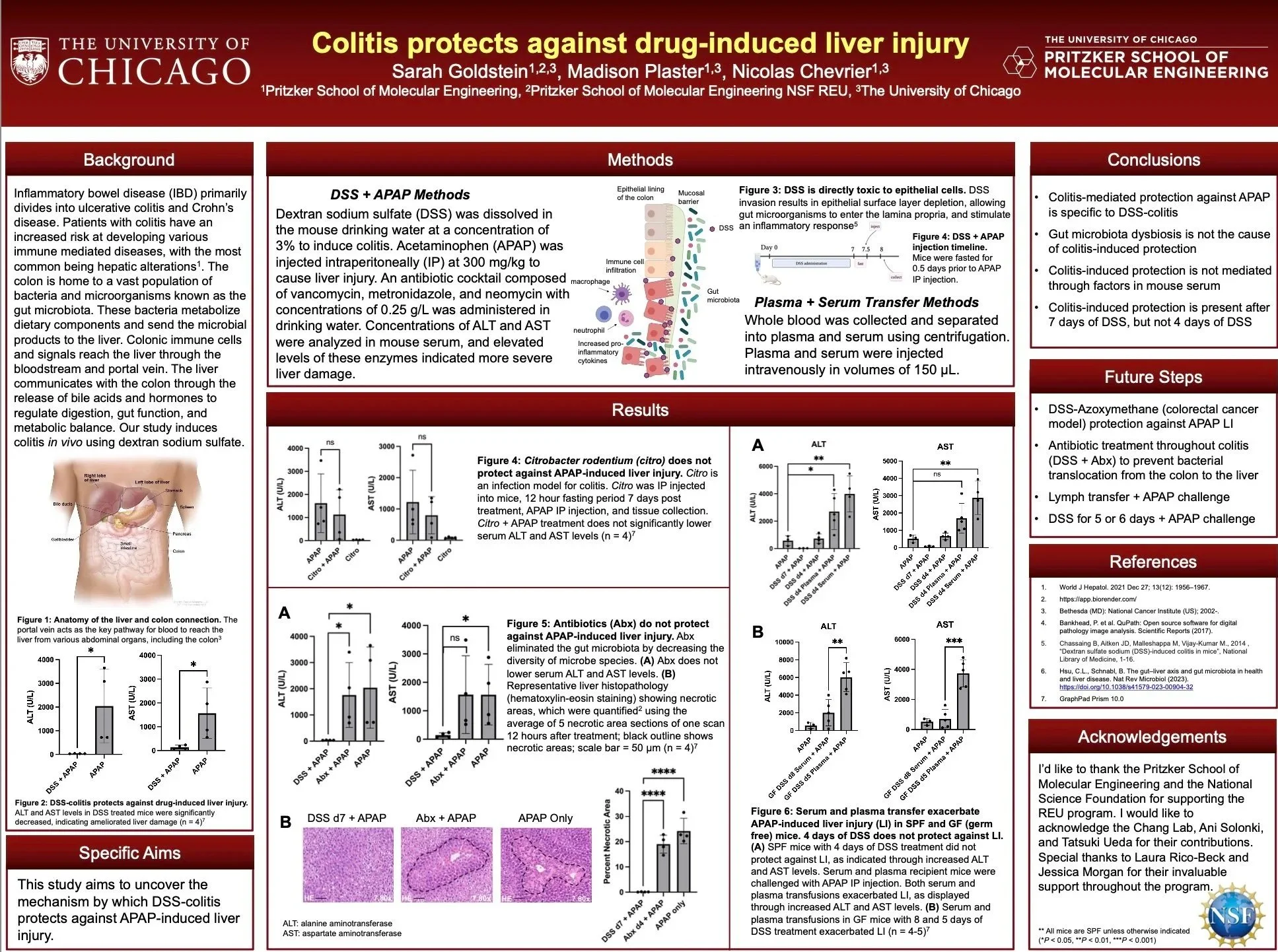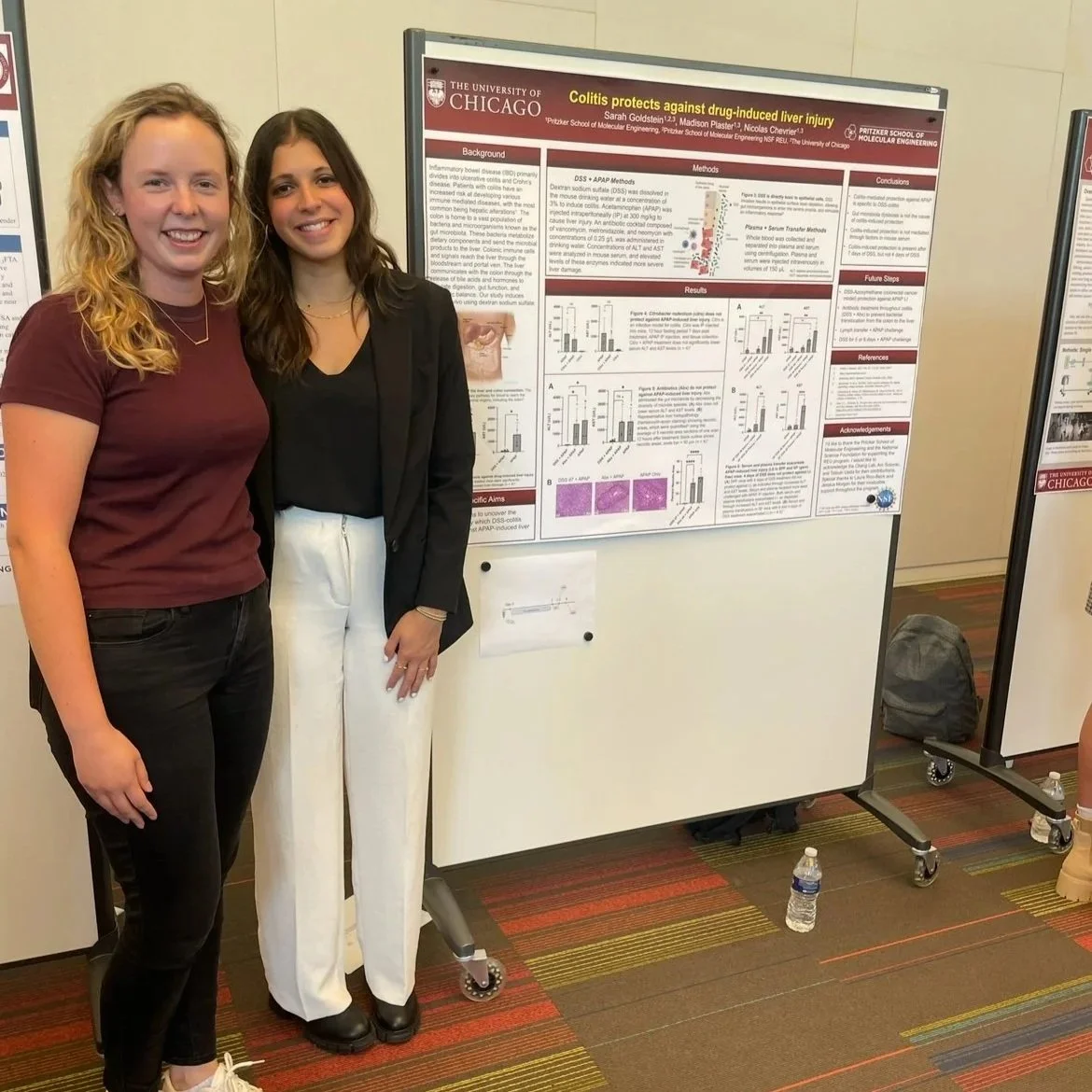Colitis Protects Against Drug-Induced Liver Injury
Overview
During my National Science Foundation (NSF)-funded Research Experience for Undergraduates (REU) at the University of Chicago’s Pritzker School of Molecular Engineering, I worked with PhD candidate Madison Plaster under Professor Nicolas Chevrier to study how colon inflammation impacts systemic immune responses. I contributed to a project uncovering how ulcerative colitis protects against acetaminophen (APAP)–induced liver injury, highlighting the interconnectedness of the gut–liver axis. This work was conducted with graduate student Madison Plaster and culminated in a research poster presentation.
Research Goals
Model colitis in vivo by administering dextran sodium sulfate (DSS) to mice
Induce liver injury with acetaminophen challenge
Dissect mechanisms of colitis-mediated protection (gut microbiota, serum factors, immune cell transfer)
Quantify outcomes using serum biomarkers (ALT, AST) and histopathology
Key Findings
Colitis-Specific Protection: DSS-induced colitis, but not infection- or antibiotic-based models, reduced APAP liver toxicity
Microbiota-Independent: Altering gut microbial composition did not explain the protective effect
Time-Dependent: Protection was evident after 7 days of DSS treatment but absent after 4 days
Serum Factors Not Involved: Transferring serum or plasma worsened liver injury rather than protecting against it
This project was part of ongoing work in the Chevrier Lab at the University of Chicago, led by PhD candidate Madison Plaster under the supervision of Prof. Nicolas Chevrier (Pritzker School of Molecular Engineering).


